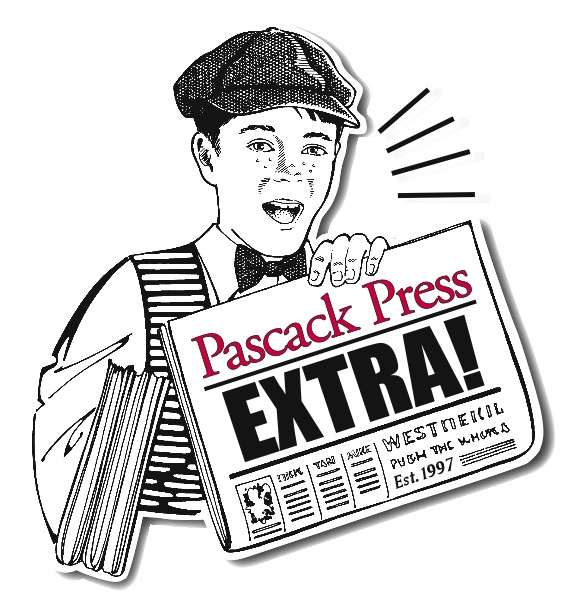
by MICHAEL OLOHAN
OF PASCACK PRESS
PASCACK VALLEY, N.J. —— Almost 75 percent of voters in four North Jersey communities voted to oppose – or at least amend – the state-imposed mandate to construct affordable housing despite the fact that most towns in the Northern and Pascack valleys are in negotiations to develop affordable housing plans with state-appointed court masters and the Fair Share Housing Center.
Of 9,237 votes cast in Hillsdale, Park Ridge, River Vale, and Dumont, 6,811 voters approved and 2,426 voted against their non-binding ballot questions.
The question in Hillsdale, Park Ridge, and River Vale asked if the borough “should stop issuing building and zoning permits, which may be court mandated, until the state legislature sets rules determining a reasonable need for towns to construct affordable housing?”
In Park Ridge, 85 percent of voters approved; in Hillsdale, 75 percent of voters voted in favor; and in River Vale, 75 percent approved.
In Dumont, approximately 62 percent of voters approved the ballot question asking if “state officials should appoint people to fill the Council on Affordable Housing and amend the Fair Housing Act to provide for adequate affordable housing.”
In fact, two of the four area towns where residents voted in the Nov. 7 non-binding referendum to oppose the affordable housing mandate—Park Ridge and River Vale—local officials are cooperating collaboratively with nearby communities to take a regional perspective on the affordable housing issue and share resources to resolve their affordable housing obligations.
However, both have yet to finalize an affordable housing plan.
Nearby Woodcliff Lake recently introduced an affordable housing settlement plan Nov. 8 after more than 18 months of negotiations.
Montvale presented a proposed affordable housing settlement at its Nov. 14 Borough Council meeting.
Reached Nov. 13, Park Ridge Mayor Keith Misciagna said that voters’ overwhelming approval (85 percent) of the non-binding question that local officials should refuse to issue building and zoning permits was “a mandate” that should show the state Legislature and court system that the way affordable housing is being court-ordered and mandated is wrong.
Although he said he agreed with the sentiment expressed by voters, he said not issuing building and zoning permits was “an extreme measure.
“We will meet our obligations if the court is reasonable,” said Misciagna. “We’re not against affordable housing,” he added.
He said many voters were opposing builders or developers using ‘builder’s remedy’ lawsuits “as a wedge” to attempt to get multi-unit developments approved “that change the character of communities.”
“This is a good idea (affordable housing) but gone bad,” said Misciagna. He said builder’s remedy lawsuits “jam [huge developments] down our throats.”
Hillsdale Mayor John Ruocco, reelected as mayor Nov. 7 after taking over this year for former Mayor Douglas Frank, said on Nov. 10 that Hillsdale is “very close” to finalizing an affordable housing plan with Fair Share Housing Center.
Ruocco said he attributes the vote against affordable housing ballot question to frustration and a “sense” that local voters “agree with the concept of affordable housing but disagree with the rollout” of mandated housing numbers by the state. He said the public question “is basically taking the temperature of the public regarding affordable housing.”
He said previous numbers for affordable housing units proposed for Hillsdale ”were not realistic and little thought was given to effects on infrastructure.”
He said the question’s call to stop issuing building and zoning permits was “a little over the top” but he was “not surprised” at the vote.
He said residents indicated that their concerns were “more we worked hard to get to Hillsdale…and a sense that there was going to be an end-run around that.”
He said that Hillsdale benefited from hosting senior citizen housing and several group homes that helped in negotiations towards an affordable housing plan.
“We are at a point now where we think we will have a favorable outcome,” said Ruocco, referring to the affordable housing plan.
District 39 Assemblywoman Holly Schepisi, reelected Nov. 7, drafted and supplied the ballot question used in Hillsdale, Park Ridge and River Vale to help gauge voter sentiment.
“People feel as if they had no choice,” she said Nov. 14, when asked what the lopsided vote against affordable housing meant.
“There is no ‘settlements’ in this. This is a process that is broken,” said Schepisi.
She called the current court-ordered system of calculating affordable housing obligations “a continuous self-perpetuating cycle of hell” that reoccurs on a regular basis. She said the legislature should pass the pending bills she has sponsored.
“I’ve received calls from all over the state … they feel as if they don’t have a choice and are guided by professionals that tell them that they have no choice” regarding settling affordable housing litigation.
She said she’s looking to bring “a better way” for municipalities to provide affordable housing.
“She said too often “the debate has become: ‘you’re a racist, you’re a xenophobe, you hate poor people.’ Every community I have spoken to has no issue with bringing affordability into our communities. It’s been a broken system for a very long time,” she said.
Calls to River Vale Mayor Glen Jasionowski and Dumont Mayor James Kelly were not returned by press time.
[slideshow_deploy id=’899′]
